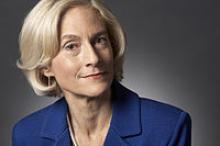
What Is It
Where would we be without emotions? Many philosophers throughout history have thought the emotions serve only to cloud our judgments and actions. Phrases like "He's just acting emotionally" or "Her judgment is clouded by emotion" are phrases of condemnation, not of praise. Still, some philosophers have argued the emotions have an intelligence of their own and that the emotions are indispensable for our ethical lives. Join John and Ken and their guest Martha Nussbaum, author of Upheavals of Thought: The Intelligence of Emotions, as they explore the role of emotions in well lived lives and well-ordered societies.
Listening Notes
Usually when we think about the mind, we divide it into thoughts and feelings. Where do emotions fit in? What are the emotions good for? Hume thought morality was based on them while Kant wanted to banish them from moral thought. Ken introduces Martha Nussbaum, professor at the University of Chicago. What is special about the emotions? Nussbaum thinks emotions involve an appraisal about what is good for your own wellbeing. Ken says that emotions have intentional content, that is, they are about something.
Nussbaum says that our emotions play a big part in figuring out how to live a well-lived life. The Stoics thought that anger damaged society, so they denied emotions as much as possible. Ken thinks that emotions display our vulnerabilities. Nussbaum says that there are many kinds of non-verbalizable thought, such as pictures. How does anger cloud our thought? Ken says that beliefs can be true or false, but emotions, like anger, seem to be appropriate or inappropriate rather than true or false.
How do we decide whether an emotion is appropriate? Nussbuam says that it is a part of growing up and deciding how we should live. How do we decide what to care about? Should intuitions serve as our primary guide in decision making about right and wrong? Are emotions rooted in the older part of the human brain? Nussbaum thinks that certain emotions, such as compassion, requires higher brain functions.
- Roving Philosophical Report (Seek to 04:27): Amy Standen interviews Linda Wetzel, professor at Georgetown University, about emotions and the android Data from Star Trek: The Next Generation.
- Sixty Second Philosopher (Seek to 49:54): Ian Shoales quickly discusses Baruch Spinoza's views, from emotions and ethics to ideas about God.



